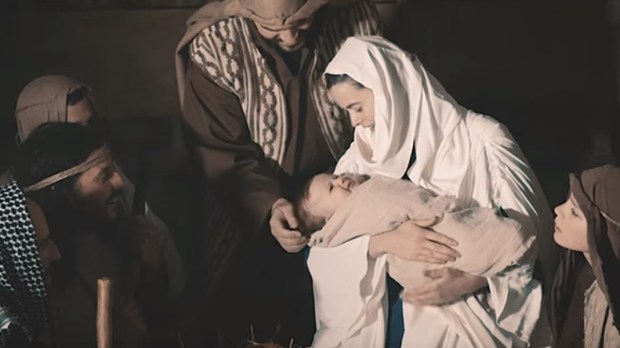A few years ago, I consecrated myself to Mary, following Father Michael Gaitley’s 33 Days to Morning Glory. This year I renewed the consecration on the feast of the Immaculate Conception.
I wish I didn’t. I wish I waited until Christmas.
Consecration to Mary does not come naturally to me.
The first time I read the book, I balked. I finished it but refused to be consecrated. The second time I read it, I struggled, demanding on my knees in the chapel that God explain to me why it’s okay to talk about someone being the “slave” or “property” of another person. Then, as if in answer to my prayer, someone opened the tabernacle and put consecrated hosts in a pix.
Well, this year the old struggle came back. As I prepared for to renew my consecration, it suddenly made no sense to me. If Baptism gives us Christ’s life, the Eucharist incorporates us into his body, and the Scripture gives us his word — why would Mary want certain followers of Jesus to add “special relationship with Mary” on top of all of that?
Intercessory prayer, I understood. “Entrustment” to Mary, I didn’t. Then, as if in answer to my prayer again, I went to a farm with a priest and sister to help film
.The experience reminded me that God was the first to entrust himself to Mary.
We had to separate the animals from the manger in the video, because otherwise they would knock over Baby Jesus. It was very difficult to accommodate a baby in a barn. It drove home just how risky the whole incarnation was. God didn’t just need Mary and Joseph to say Yes once – he needed them to protect the frail body he chose, minute by minute, day by day.
Then, when our shepherds gathered around the manger, they naturally kept looking from the face of Jesus to the face of Mary and back. The angels sent the shepherds to find the baby – but what they found was the baby and Mary. You can’t separate the two. God intended it that way.
When the shepherds came, I noticed another thing, too: The Nativity scene is dominated by one character.
It never struck me before we filmed it how full of men the crèche is. It never struck me because you don’t focus on the men. You mostly just see Mary.
We featured two consecrated people as Joseph and Mary: Benedictine College’s chaplain, Father Simon Baker OSB, and Sister Joan Kolbe of the Marian Sisters of Lincoln, Nebraska. She has no children, but Sister Joan Kolbe immediately had a motherly presence about her as we filmed. She was able to comfort the baby’s crying and lay the sleeping child in the hay. Joseph was just a guy in the background.
But Mary’s presence filled the whole life of Christ in the same way — from Bethlehem to Calvary to the Upper Room at Pentecost.
Christmas is a recommitment holiday — a day to enter Christ’s life all over again.
The liturgy reminds us that Christmas makes our whole relationship with God new. We don’t just celebrate his birth — we celebrate our “rebirth and renewal” in him, on the day he “gave power to become children of God.”
Christmas calls for us to closely identify with Jesus Christ — such that we become his body.
And this is the big insight I had this year about Christmas and Marian consecration: When we consecrate ourselves to Mary, we are not taking on a new identity — we are committing to the identity we already have.
If we are the body of Christ, then Mary is our mother. And she is utterly committed to us.
If we want to identify with Christ in everything, we need to accept not just his words and his sacraments, but the mother he gave us.
And she is not just our Blessed Mother — she is our mom. She is the one looking out for us in everything — noticing what is missing from our life, bringing us to him when we doubt, and keeping us focused on him when we he seems to have gone.
Just watch her this Christmas and see.

